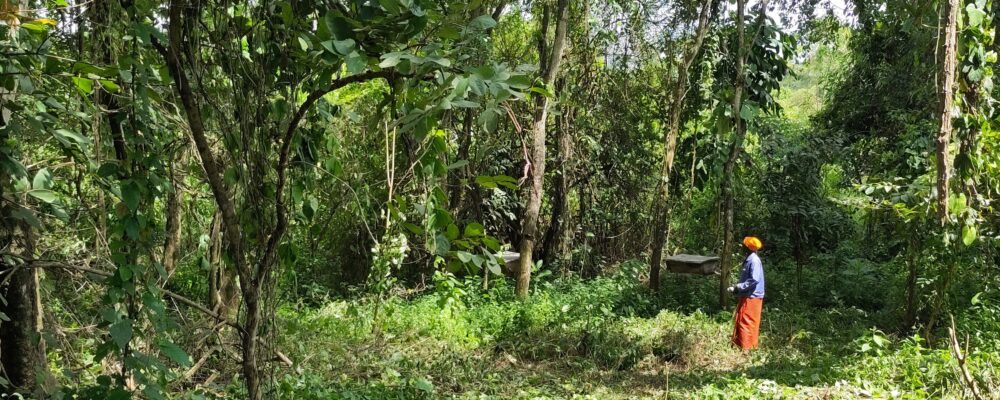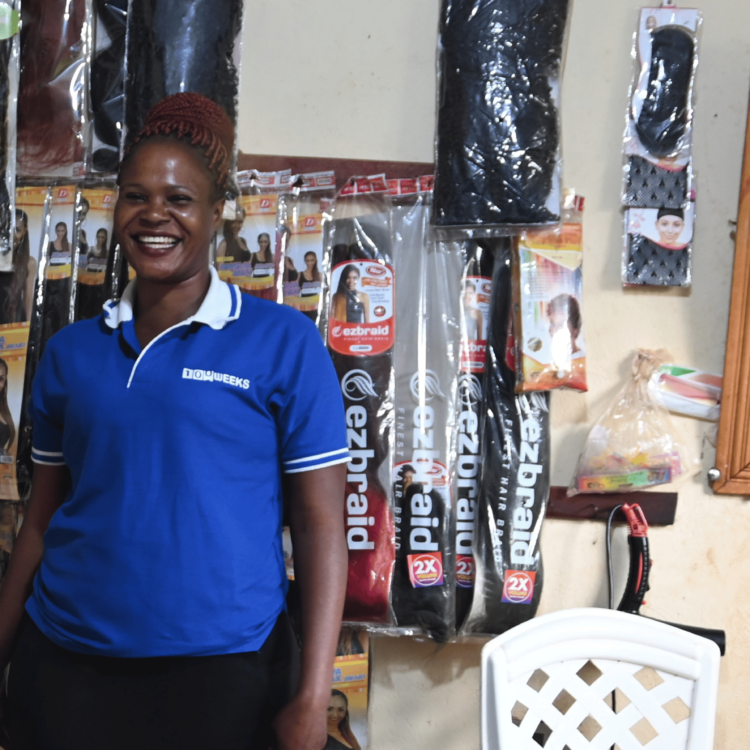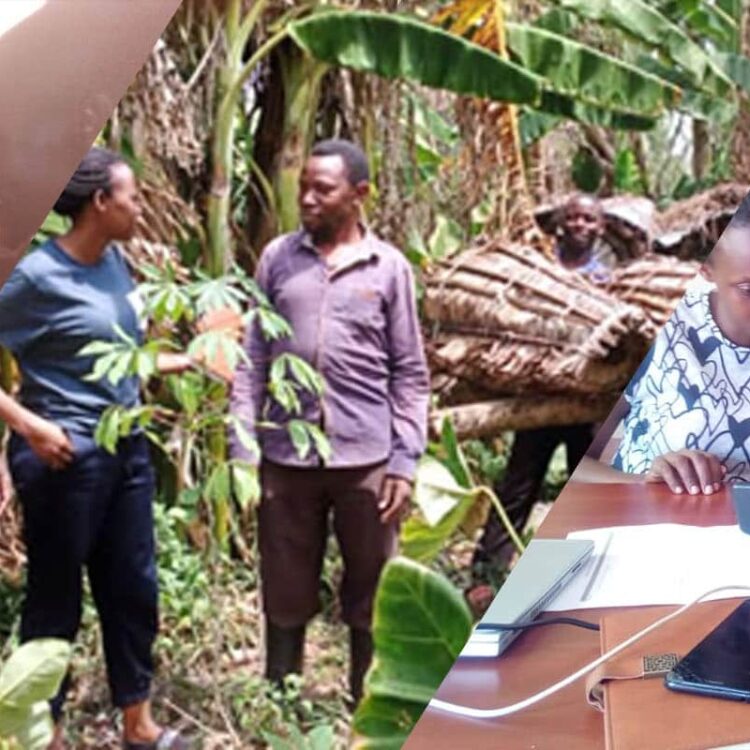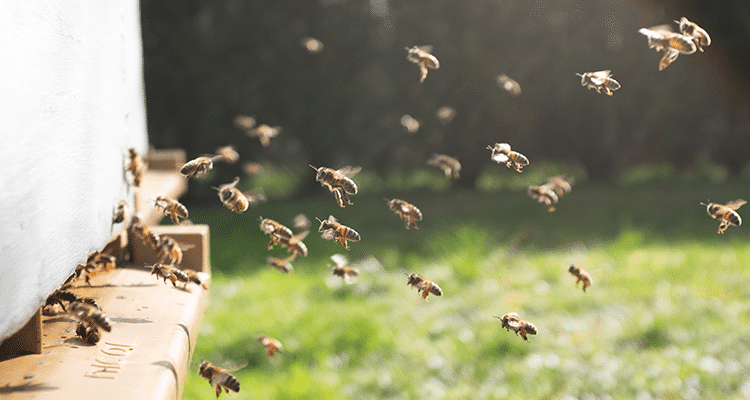
By Caspar Swinkels
This blog is part of a case study in collaboration with TUNADO and Woord en Daad that examines how smallholder agriculture and apiculture fit into the green jobs discussion, and how policy could accommodate this. TUNADO is the Ugandan Apiculture Development Organisation, the leading body for the development of the apiculture sector in Uganda. It is a member-based organisation representing beekeepers and other apiculture actors on a national and international level, and channelling funds and projects to promote the sector. Woord en Daad is a Dutch faith-based development organisation involved in some of the projects with TUNADO. The aim of the case study is to place smallholder agriculture in the green jobs discussion, and see how it fits, or doesn’t.
Context and Concept green jobs
There is no uniform understanding of the concept Green Jobs. However, the ILO states “Green jobs are decent jobs that contribute to preserve or restore the environment, be they in traditional sectors such as manufacturing and construction, or in new, emerging green sectors such as renewable energy and energy efficiency.” The concept is inherited from UNEP’s work on the green transition and the fear of its negative impacts on the job market, which argues that instead of merely making jobs obsolete, the green transition will create new jobs, while existing ones can become more ‘green’.
The concept of green jobs is adopted and adapted by youth employment programmes, as a way of determining the direction and quality, the characteristics and sectors of jobs they are creating. These jobs should not be merely quantified, but also assessed on quality, decency and whether they are actually ‘green’ or not.
Green jobs programmes tend to prioritise industry, manufacturing, energy and waste sectors above agriculture. Given the historical importance of the agricultural sector in the economic progress of many countries, it should have an important position. In Uganda the majority of agricultural producers are smallholders. Similar to the Decent Jobs discussion, the concept faces the challenge of echoing the general trend to prioritise formal MSME companies in industries and manufacturing. This is a problem when the vast majority of workers is left out because they are working informally and in smallholder agriculture. So, how to apply this concept on the rural smallholders so that they can be included in the employment creation efforts?
Smallholders in a changing world
Climate change effects are no future threat. Africa, the continent that is responsible for less than 4% of global emissions today (and most of that in extractive industries that export to non-African countries), is already facing the harsh reality of climate change. Smallholder agriculture in African countries is already under pressure from immediate consequences of climate change – being dependent on quality of nature and predictability of seasons. This is also recounted by the beekeepers in this study: rains fall less frequently, less predictably, and often more devastatingly – with harsh consequences such as prolonged droughts and floods.
The smallholder farmers in this case study have increasingly faced failed crops, loss of livestock and uncertainty. Their positions as producers in value chains are challenging, with low access to markets beyond their immediate vicinity, and little power to set prices or to influence other external factors to their economic situation. This limits them in their growth and productive trajectories. Still, they can be crucial caretakers of the environment and remain the backbone of agricultural production.
Several beekeepers have shifted to combining agroforestry with their other crops to diversify and create a conducive environment for the bees. Therefore, smallholders are already faced with adaptation issues. Adaptation means to change ecological, social or economic systems to deal with climate change and its effects, especially in order to mitigate potential damages, or to benefit from opportunities. This could include ‘greening’ a sector by making it more resilient to the changes that are already deeply affecting it. The Ugandan smallholder sector is unlikely to go anywhere in the coming decade, so adaptation should become a priority.
Green arguments for smallholders
Some of the smallholders in the study already work on diversifying their farming practices by mixing in cashew trees, fruit trees, drought resistant crops and beekeeping. When one farmer is seen doing these things successfully, other smallholders in their vicinity follow short. This means there is potential for green jobs in smallholder agriculture.
Watershed management and a combination of farming, beekeeping and agroforestry are possibilities to adapt to erratic weather patterns and rainfall. Diversifying food crops with cash crops from trees adds value to the economic side of farming. Regenerating the soil and stopping degradation and erosion can be one of the features of smallholder agriculture. And finally, organising and collectivising smallholder farmers into cooperatives, savings groups and value chain member-based organisations can be a powerful vector in the promotion of their livelihoods and their role in food security and ecosystems.
The difficult fit for smallholder agriculture in the green jobs discussion points to a gap. Possibly, the heterogeneous nature of the large population group of smallholders may make it difficult to provide a tailor-made approach for employment creation. Secondly, the fact that these smallholders already have a ‘job’ in their agricultural activities may make ‘employment creation’ difficult to imagine. Still, there should be ways to include them effectively into the green jobs movement. This could be done by looking at the potential change this sector has to offer, in terms of environmental services, or by the necessity to adapt to the current climate change effects, and ensuring livelihoods and food security.
Do rural smallholders have green jobs?
Aspects of the current smallholder working realities are green. Most farmers are already affected by climate change and are coping with its disastrous effects. This places their jobs already within the green jobs discourse of climate change adaptation. Still, more is needed to support their adaptation efforts and to allow them to diversify and cope with ever increasing pressures.
Green jobs interventions currently do not explicitly focus on smallholder agriculture. These interventions could open up the potential of the majority of workers in agriculture in Uganda for green and climate smart agriculture. But this requires a shift from green jobs to green careers, as smallholders may not fit precisely into one job category due to their diversified livelihoods. This is a common ground between green jobs for smallholders and decent work for self-employed women in Uganda.
Employment programmes that benefit smallholder farmers should have a comprehensive scope, which would lean them towards value chain development. This means promoting access to markets, credit, equipment, skills and knowledge, as well as showing the way to diversify in a climate-smart way.
In conclusion, the discussion on green jobs should shift to include the majority of workers in non-industry and non-manufacturing sectors that do have the potential to – or are already working to – greening the economy. This includes care work (often unpaid), services, trade, but also smallholder agriculture. Employment programmes could make use of career pathways, or farming plans to integrate better quality of work, and environmental stewardship into the smallholder agriculture sector. In addition, access to credit and markets, as well as skills and knowledge on best regenerative agriculture practices should be promoted.
More on green jobs
INCLUDE has more to offer about green jobs and youth employment. Check out this recent report about Green Jobs for youth in Uganda, made in collaboration with the Challenge Fund for Youth Employment. Also, here is the evidence synthesis series, which covers many aspects on this topic, for example employment policy, green jobs, and the future of work.
For more on apiculture: here is our dedicated page.




